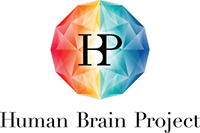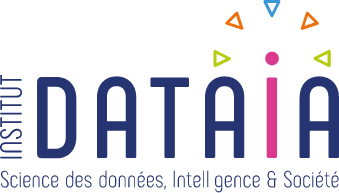Team¶
This work is made available by a community of people, which originated from the INRIA MIND Project Team and scikit-learn but grew much further.
An up-to-date list of contributors can be seen in on GitHub.
Additional credit goes to Michael Hanke and Yaroslav Halchenko for data and packaging.
Core developers¶
The nilearn core developers are:
Other contributors¶
Some other past or present contributors are:
Ahmad Chamma: Inria, Saclay, France
Alex Rothberg: Free Agency, New York, USA
Alexandre Abadie: Inria, Paris
Alexandre Abraham: Bazemont, Île-de-France, France
Alexandre Gramfort: Meta, France
Alexandre Cionca: Centre Hospitalier Universitaire Vaudoise, Lausanne, Switzerland
Alexandre Sayal: CIBIT, University of Coimbra, Portugal
Alexis Thual: Inria, Saclay, France
Alisha Kodibagkar: MIT McGovern Institute, Cambridge, Massachusetts, United States
Amadeus Kanaan
Ana Luisa Pinho: Western University, London, Ontario, Canada
Anand Joshi: University of Southern California, Los Angeles, California, United States
Andrés Hoyos Idrobo: Rakuten, France
Anne-Sophie Kieslinger: Max Planck Institute for Human Cognitive and Brain Sciences, Leipzig, Germnay
Anupriya Kumari: Indian Institute of Technology, Roorkee, India
Ariel Rokem: University of Washington, Psychology, Seattle, Washington, 98107, USA
Audrey Duran: TheraPanacea, France
Ben Cipollini: Facebook, Hayward, California, USA
Bertrand Thirion: Inria, Saclay, France
Caglar Cakan: Technische Universität Berlin, Berlin, Germany
Chloe Hampson: Florida International University, Miami, United States
Chris Gorgolewski: Google LLC
Chris Markiewicz: Stanford University, Stanford, California, USA
Christian Horea: Dartmouth College, PBS, Hanover, New Hampshire, USA
Christina Roßmanith: Dept. of Neurology, Medical Faculty Mannheim, University of Heidelberg, Germany
Colin Reininger: Denver, Colorado, USA
Connor Lane: Child Mind Institute, Baltimore, MD, USA
Dan Gale: Centre for Neuroscience Studie, Queen University, Kingston, Ontario, Canada
Daniel Gomez: Cambridge, Massachusetts, USA
Danilo Bzdok: McGill University & Mila Quebec AI Institute, Montréal, Canada
David G Ellis: University of Nebraska Medical Center, Nebraska, USA
Demian Wassermann: Inria, Saclay, France
Derek Pisner: St. Petersburg, FL
Dimitri Papadopoulos Orfanos: NeuroSpin, CEA, Université Paris-Saclay, Gif-sur-Yvette, France
Elizabeth DuPre: Stanford University, Stanford, California, USA
Elvis Dohmatob: Facebook AI Research (FAIR)
Eric Larson: Institute for Learning and Brain Sciences, University of Washington, Washington, USA
Evan Edmond: University of Oxford, Oxford, UK
Fabian Pedregosa: @google, Geneva, Switzerland
Florent Pollet: ENS Paris-Saclay, Saclay, France
Gael Varoquaux: Inria, Saclay, France
Gilles de Hollander: Vrije Universiteit, Amsterdam, The Netherlands
Greg Kiar: Child Mind Institute
Greydon Gilmore: Department of Mathematics, Western University, Toronto, Canada
Guillaume Lemaitre: Inria, Saclay, France
Gustav Magnusson: Linköping University, Linköping
Hande Gözükan: Inria, Saclay, France
Hao-Ting Wang: Montréal Geriatrics Institute (CRIUGM), Montréal, Canada
Himanshu Aggarwal: Inria, Saclay, France
Idrissa Traore: IMT Atlantique, Brest, France
Jake Vogel: Department of Clinical Sciences, SciLifeLab, Lund University, Lund, Sweden
Jan Margeta: KardioMe, Nova Dubnica, Slovakia
Jaques Grobler: Anyline GmbH, Vienna, Austria
Jason Gors: Insight Data Science, Mountain View, California, USA
Jason Kai: Child Mind Institute
Javier Rasero: School of Data Science, University of Virginia, Viginia, USA
Jean Kossaifi: Imperial College London, London, UK
Jean-Rémi King: Meta AI, CNRS, Paris
Jelle Roelof Dalenberg: University Medical Center Groningen, Groningen, The Netherlands
Jeremy Lefort-Besnard: Inria Rennes, France
Jerome Dockes: Origami lab, McGill University, Montréal, Canada
Jerome-Alexis Chevalier: Emerton Data
Johannes Wiesner: Central Institute of Mental Health, Mannheim, Germany
John T. Johnson: Neurogram, USA
Jon Haitz Legarreta Gorrono: Brigham and Women’s Hospital, Mass General Brigham/Harvard Medical School, Boston, Massachusetts, USA
Jordi Huguet: BarcelonaBeta Brain Research Center
Julia Huntenburg: International Brain Laboratory, Berlin, Germany
Julio A Peraza: Florida International University, Miami, Florida, USA
Kevin Sitek: Northwestern University, Evanston, Ilinois , USA
Koen Helwegen: Dutch Connectome Lab, VU, Amsterdam, The Netherlands
Kshitij Chawla: Duke University Health System, USA
Kun CHEN: University of Macau, Macau, China
Lee Newberg: Kitware, Inc., USA
Martin Perez-Guevara: Criteo, France
Martin Wegrzyn: Bielefeld University, Bielefeld, Germany
Mathias Goncalves: Stanford University, Stanford, California, USA
Mathieu Dugré: Concordia University, Montréal, Canada
Matthias Ekman: Donders Institute, Nijmegen, The Netherlands
Matthieu Joulot: Aramis, Paris Brain Institute, Paris, France
Mehdi Rahim: Air Liquide, France
Mia Zwally: DSST, National Institute of Mental Health, USA
Micha Burkhardt: University of Oldenburg, Germany
Michael Eickenberg: Flatiron Institute, New-York, New-York, USA
Michael Hanke: Psychoinformatics, Forschungszentrum Jülich GmbH, Jülich, Germany
Michael Notter: ams OSRAM, Martigny, Lausanne, Switzerland
Michael Waskom: Flatiron health, New York, USA
Michelle Wang: Origami lab, McGill University, Montréal, Canada
Milton Camacho: University of Calgary, Calgary, Alberta, Canada
Mohammad Torabi: Origami lab, McGill University, Montréal, Canada
Natasha Clarke: @SIMEXP, Montréal, Canada
Neelay Shah: Max Planck Institute for Intelligent Systems, Germany
Nicolas Gensollen: Inria, Paris, France
Nikhil Krish: University of Texas, Austin
Oliver Warrington: Wellcome Centre for Human Neuroimaging, UCL, London, UK
Oscar Esteban: Centre Hospitalier Universitaire Vaudoise, Lausanne, Switzerland
Patrick Sadil: Department of Biostatistics, Johns Hopkins Bloomberg School of Public Health, USA
Paul Reiners: Masonic Institute for the Developing Brain, University of Minnesota, USA
Paula Sanz-Leon: Medical Research Institute, Brisbane, Australia
Peer Herholz: Origami lab, McGill University, Montréal, Canada
Philippe Gervais: Zurich, Switzerland
Pierre Bellec: Psychology Department, University of Montréal, Montréal, Canada
Pierre Glaser: Gatsby Computational Neuroscience Unit, University College London, London, UK
Pierre-Louis Barbarant: Inria, Saclay, France
Pierre-Olivier Quirion: Canadian Center for Computational Genomics / Calcul, Québec, Canada
Pradeep Reddy Raamana: University of Pittsburgh, Pittsburgh, PA, USA
Prakhar Jain: RV College of Engineering, Bangalore, India
Raphael Meudec: Inria, Saclay, France
Robert Luke: @agencyenterprise, Melbourne, Australia
Roberto Guidotti: University “G. D’Annunzio” Chieti-Pescara, San Benedetto del Tronto, Italy
Rohan Thomas Jepegnanam: Cognitive Neuroscience & Clinical Phenomenology Lab, Christian Medical College, Vellore, India
Ronald Phlypo: Lyon area, France
Ryan Hammonds: UC San Diego, San Diego, California, USA
Rémi Gau: Origami lab, McGill University, Montréal, Canada
Sage Hahn: deephealth
Sanjana Soni: Goverment Engineering College, Bilaspur, India
Simon Steinkamp: Danish Research Centre for Magnetic Resonance, Copenhagen University Hospital Amager & Hvidovre, Copenhagen, Denmark.
Sin Kim: Korea Advanced Institute of Science and Technology: Daejeon, KR
Steven Meisler: Harvard-MIT Division of Health Sciences and Technology, Cambridge, Massachusetts, USA
Suramya Pokharel: Tribhuvan University, Kathmandu, Nepal
Sylvain Takerkart: CNRS, Institut des Neurosciences de la Timone, Marseille, France
Tamer Gezici: Bilkent University
Tarun Samanta: Acharya Prafulla Chandra College
Taylor Salo: Lifespan Informatics & Neuroimaging Center, University of Pennsylvania, USA
Thomas Bazeille: Inria, Saclay, France
Tom Vanasse: Wisconsin Institute for Sleep and Consciousness, USA
Victoria Shevchenko: Inria Saclay, Université Paris Cité, France
Victoria McCray: Northeastern University, USA
Virgile Fritsch: Inria, Saclay, France
Yaroslav Halchenko: Dartmouth College, PBS, Hanover, New Hampshire, USA
Yasmin Mzayek: Inria, Saclay, France
Yichun Huang: Peking University, Beijing, China
Zvi Baratz: Tel-Aviv University, Israel
Óscar Nájera: Checkmk
Funding¶
Himanshu Aggarwal is paid by INRIA.
Rémi Gau is paid by a grant from the Chan Zuckerberg Initiative
Alexandre Abraham, Gael Varoquaux, Kamalakar Reddy Daddy, Loic Estève, Mehdi Rahim, Philippe Gervais were paid by the NiConnect. project, funded by the French Investissement d’Avenir.
Kshitij Chawla was paid by INRIA.
Yasmin Mzayek and Nicolas Gensollen were paid by the Human Brain Project
 .
.
NiLearn is also supported by DigiCosme
 and DataIA
and DataIA  .
.
Citing nilearn¶
If you want to cite Nilearn, we suggest you do it using our Zenodo DOI:
@software{Nilearn,
author = {Nilearn contributors},
license = {BSD-4-Clause},
title = {{nilearn}},
url = {https://github.com/nilearn/nilearn},
doi = {https://doi.org/10.5281/zenodo.8397156}
}
Nilearn’s Research Resource Identifier (RRID) is: RRID:SCR_001362
There is no paper published about nilearn. However, the patterns underlying the package have been described in: Machine learning for neuroimaging with scikit-learn.
Citing scikit-learn¶
A huge amount of work goes into scikit-learn, upon which nilearn relies heavily. Researchers who invest their time in developing and maintaining the package deserve recognition with citations. In addition, the INRIA MIND Project Team needs citations to the paper in order to justify paying a software engineer on the project. To guarantee the future of the toolkit, if you use it, please cite it.
See the scikit-learn documentation on how to cite.